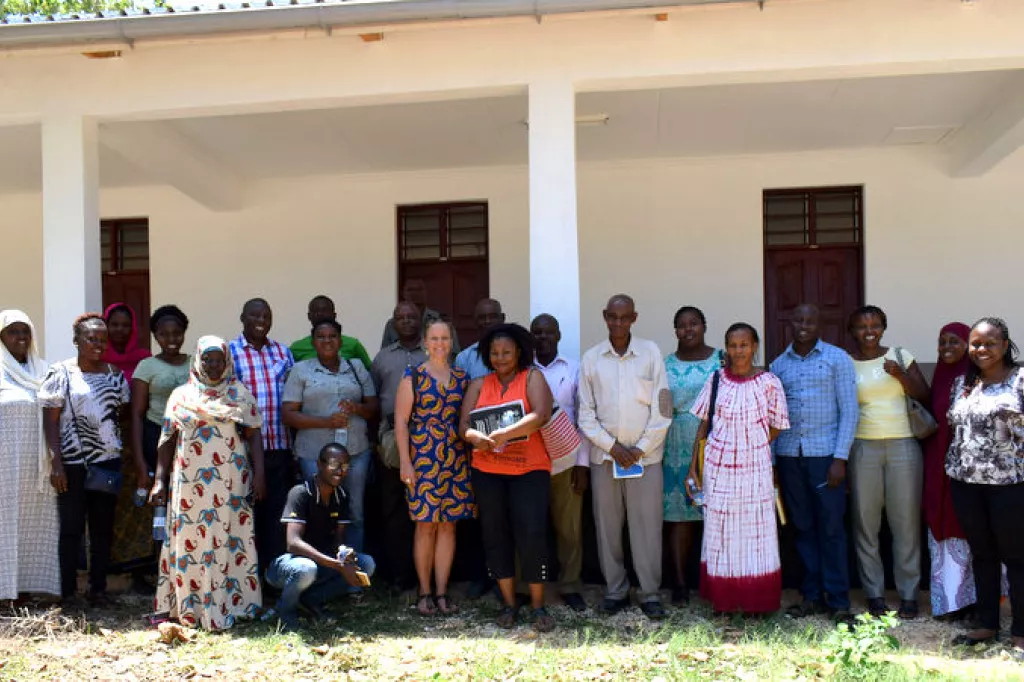When community take the driving seat

When community members in Mtwapa Village saw the ground-breaking ceremony and commissioning of a new local dispensary by their local elected representative in 2005, they were elated with joy knowing their access healthcare challenge was about to be over. To their shock and disappointment, this was not to be as the project stalled for 10 years from 2008 with virtually no progress at all.
In Kenya and Africa, at large, it is not uncommon for political leaders to launch projects in very publicised events but only a few get completed to expectations. Most of the projects stall at different stages of their implementations, fail to achieve their intended objectives, resulting in wastage and loss of public funds.
Mostly, the stalling is attributed to corruption ineffective implementation, lack of prioritization at the state level aided by inadequate follow-up and oversight from the local community. So when the Mtwapa Dispensary stalled, it was following an already familiar trajectory at the disadvantage of the local community.
Thanks to Lamukani Hudzendereze project by Kilifi Citizen Forum, a Forum Syd partner in the Wajibu Wetu Programme, the community took a driving seat in the follow-up and oversight of the stalled dispensary.
Employing a Social Accountability Model, community members came together to form the Shimo la Tewa Citizen Ward Accountability Forum, a local accountability mechanism tasked with follow up and oversight of the project.
“Communities should be at the core of any development. They are best placed to offer solutions as well as oversight to ensure the project best fit community needs,” states Magdalena Tuva, a member of the Ward Accountability Forum.
Through public participation, lobbying and duty bearers’ engagement, the Ward Accountability forum managed to get the County Government of Kilifi to allocate Kes. 8 million for the completion of the dispensary. Their efforts did not end there but they closely worked with the contractor offering oversight leading to the successful completion of the dispensary in July 2018, barely six months since they activated the Accountability Forum.
“If money is allocated for projects like this during the fiscal budget, and there is no community follow-up, the money either ends up being re-allocated to other priorities or lost to corruption due to collusion between the local leaders and the contractor,” says Kashero Wachinyaka, the project coordinator for Kilifi Citizen Forum.
The dispensary is now complete but not yet operational as the government is yet to commission healthcare officials. It has however seen an additional allocation Kes. 5 million in 2019 to equip it ready for operations. In the meantime, they have successfully lobbied for provisional healthcare outreach conducted monthly at the Dispensary premises.
Andra nyheter

The power of people powered Public-Private Partnerships
Public–Private Partnerships (PPPs) are often discussed in terms of roads, power plants, housing, and other large infrastructure projects. But as discussed on the People’s Partnership Podcast, PPPs are...

ForumCiv’s social media accounts labelled as “extremist materials” in Belarus
Important message to our Belarusian followers. Any interaction with our content can now lead to legal consequences in Belarus. Please read the information below and take the necessary precautions for...

ForumCiv enters new strategic partnership
ForumCiv is proud to announce a new three-year strategic partnership with Sida, totalling SEK 137 million.